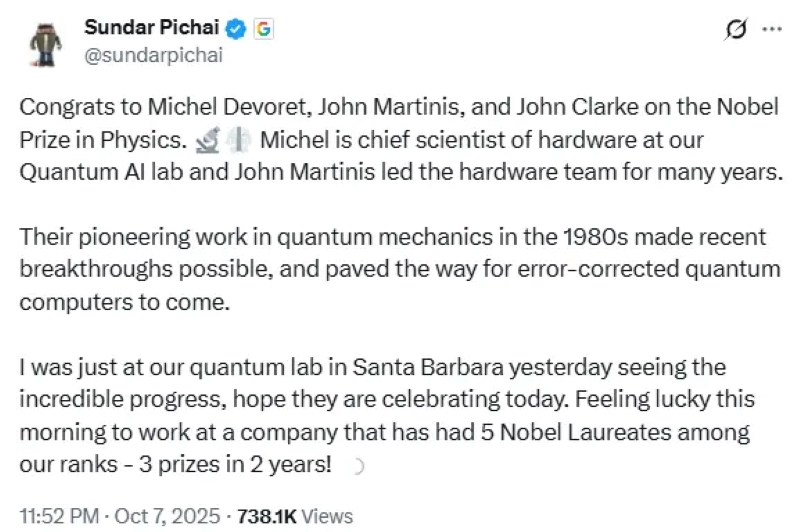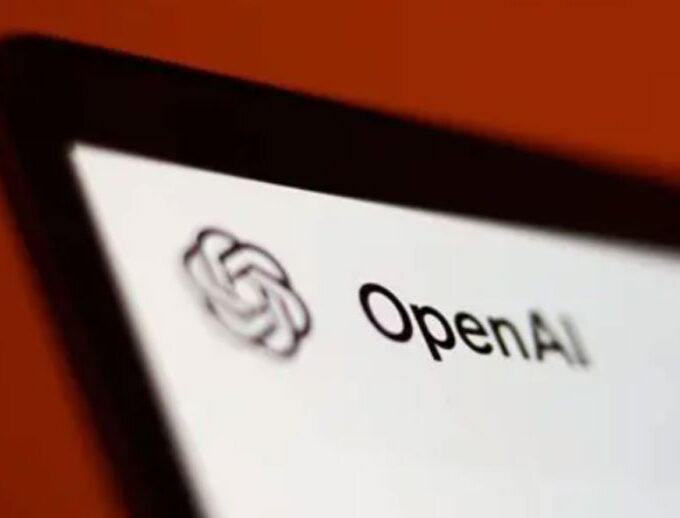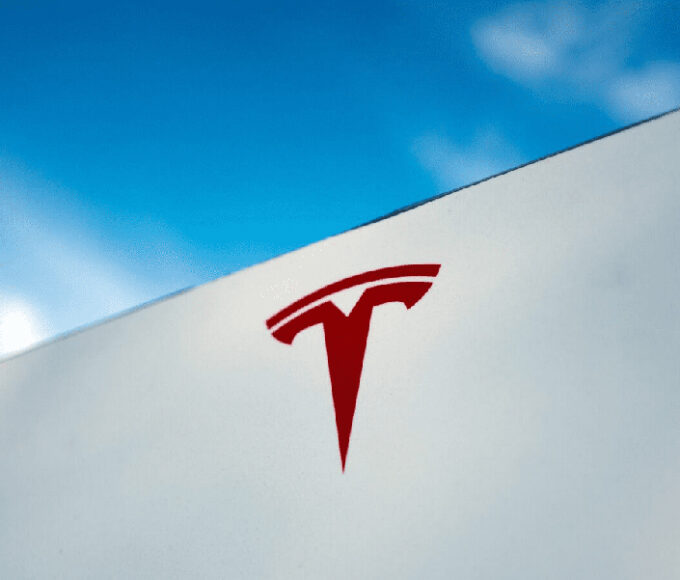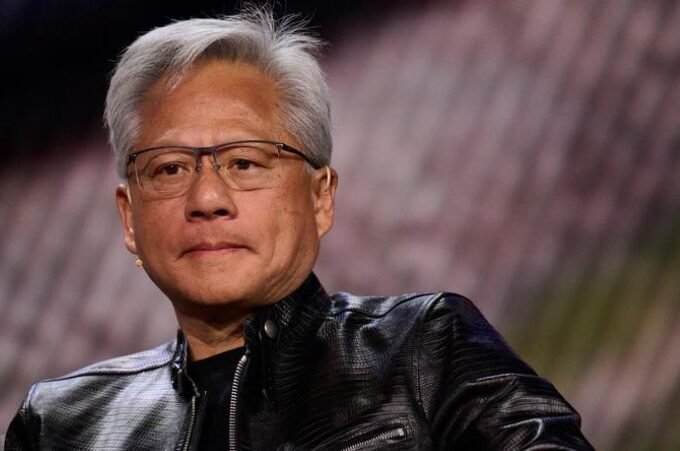Scientists from Google’s parent company, Alphabet, have won Nobel Prizes for two consecutive years, further highlighting the tech giant’s deep expertise in cutting-edge fundamental research in areas such as artificial intelligence and quantum computing, technologies that are expected to have a disruptive impact on future business and market dynamics.
The latest development is that the 2025 Nobel Prize in Physics has been awarded to three physicists for their groundbreaking contributions to quantum mechanics. These include Michel Devoret, the current Chief Hardware Scientist at Google’s Quantum AI Lab, and John Martinis, who led its hardware team for many years. This honor not only recognizes their individual achievements but also strongly endorses Google’s leading position in the race for next-generation computing technology.
Google CEO Sundar Pichai quickly congratulated the winners, emphasizing that the laureates’ research laid the foundation for the company’s recent breakthroughs in quantum computing. He stated on social media that their work paves the way for the realization of future error-corrected quantum computers. This statement sends a clear signal to the market: Google’s long-term investment in fundamental science is translating into core competitiveness in key future technologies.
This physics award follows last year’s Nobel Prize in Chemistry, awarded to researchers from Google DeepMind. Google has won the top scientific award for two consecutive years, demonstrating its R&D department’s ability to translate huge capital investment into world-class scientific results, which is crucial for assessing the company’s long-term investment value.
Focus on Quantum Breakthroughs
This year’s Nobel Prize in Physics was awarded to Michel Devoret, John Martinis, and John Clarke “for their discoveries of macroscopic quantum mechanical tunneling and energy quantization in circuits.” According to the Royal Swedish Academy of Sciences, the laureates demonstrated through a series of experiments that the exotic properties of the quantum world can be realized in a system large enough to be held in one’s hand.
Their research is highly significant. The Academy’s announcement explained that the superconducting circuit system can tunnel from one state to another like passing through a wall, absorbing and releasing energy at specific energy units predicted by quantum mechanics.
For Google, the laureates’ backgrounds are directly relevant to its core strategy. Michel Devoret, currently Chief Hardware Scientist at Google’s Quantum AI Lab and a faculty member at Yale University, continues to play a key role in the company’s efforts to build scalable, fault-tolerant quantum computers. John Martinis, a former Google researcher, led the team that achieved the milestone of “quantum supremacy” in 2019. He left Google in 2020.
AI’s Nobel Prize Moment
This year’s physics prize is another major honor for Google. Just last year, the Nobel Prize in Chemistry was awarded to Sir Demis Hassabis, CEO of DeepMind, a Google-affiliated artificial intelligence company, and John Jumper, senior research scientist, for their contributions to protein structure prediction.
The AI model they developed, AlphaFold2, solved a 50-year-old scientific challenge, predicting protein structure based on amino acid sequence. This breakthrough has enormous application value. Since its release in 2020, the model has helped predict the structures of nearly 200 million proteins and is used by over 2 million researchers in 190 countries, profoundly impacting fields such as pharmaceuticals, vaccines, and new materials.
Their co-award winner is Professor David Baker of the University of Washington, who received the award for “computational protein design.”
The R&D Strength of a Tech Giant
Winning Nobel Prizes in different cutting-edge fields for two consecutive years clearly demonstrates Google’s R&D footprint and strength as a tech giant. This is not just an academic honor; it also directly impacts the company’s long-term commercial moat. Whether it’s AI, which accelerates drug discovery, or quantum computing, which promises to overcome current computing bottlenecks, these are key variables in determining the future market competition landscape.
Sundar Pichai couldn’t conceal his pride in congratulating the physics laureates, saying, “I feel so fortunate this morning to work for a company with five Nobel laureates—three in two years!” His remarks highlight Google’s culture of attracting and retaining top scientific talent, a culture considered the engine of its continuous innovation.












